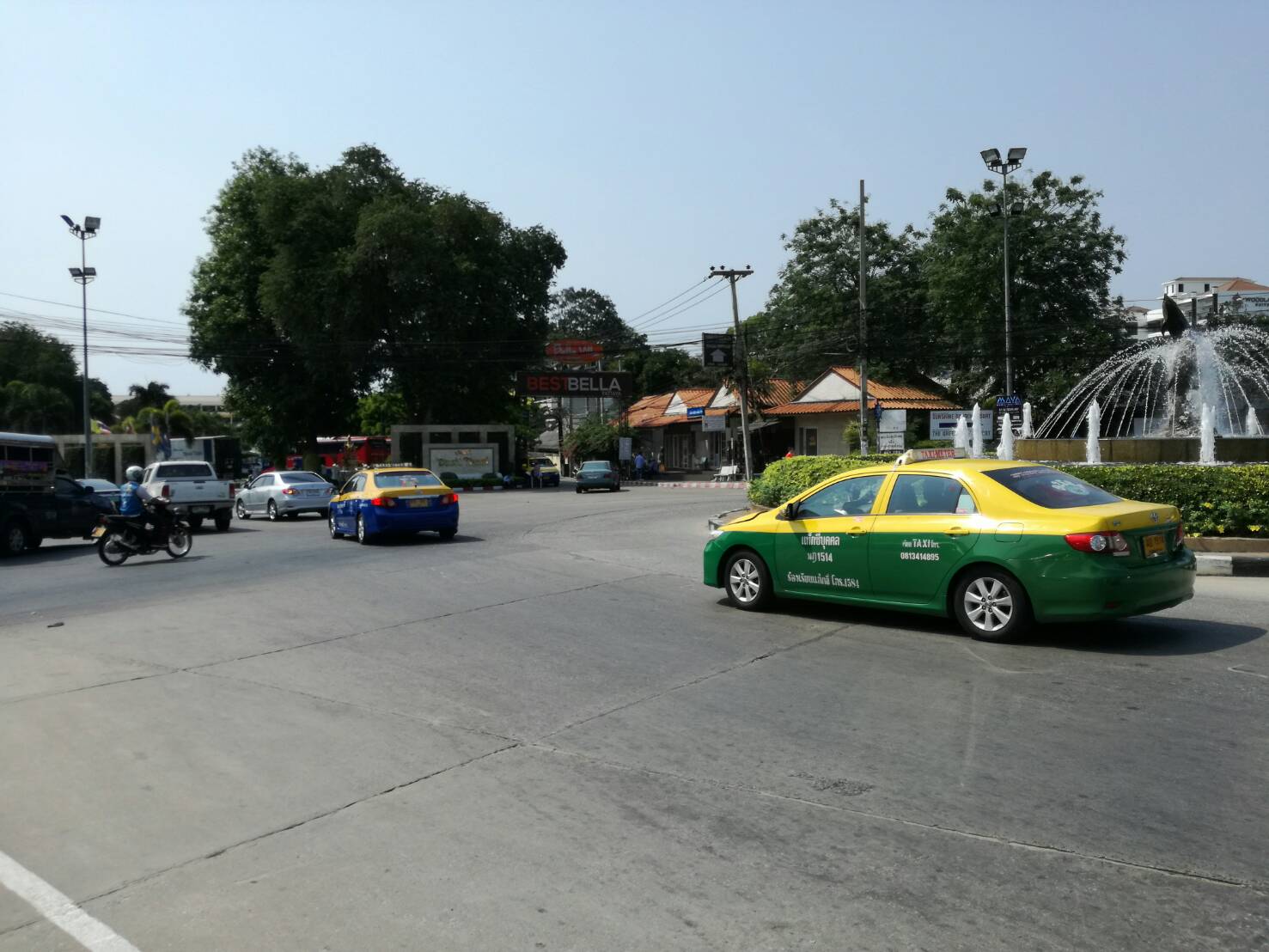In a compact city rife with 10-baht songthaews and convenient motorcycles, drivers of metered taxis say they can’t make a living by charging legal rates.
From Beach Road to the hotels of Jomtien Beach, operators of the multicolored compacts and SUVs are complaining that the Ministry of Transport – which recently cracked down on metered cabs by forcing drivers to actually use the meter – has put them in a no-win situation: They can’t make ends meet charging legal rates but might lose their license if they don’t.
According to Department of Land Transport regulations, metered cabs must charge 40 baht for the first two kilometers, six baht a kilometer up to ten kilometers, and 10 baht a kilometer for each kilometer after that. Meters also tick off single-baht charges per minute when stalled in traffic.
That translates to a fare of about 60 baht from Central Festival Pattaya Beach to the Pattaya Bus Station in clear traffic.
The problem, the drivers says, is that Pattaya is relatively small and most people take short journeys. They can’t survive on 40-baht fares, the drivers moaned.
Meter cabs, which make sense in far-flung and heavily congested Bangkok, are an odd fit for Pattaya. The city is covered in baht bus routes on which people can now travel from North Pattaya to Jomtien Beach for 10 baht.

Then there are the thousands of motorbike taxis waiting on nearly every corner. While motorbikes actually cost more than metered cabs – because, unlike their metered competitors, they continue to be allowed to charge far over the legal rate – they’re easy and convenient.
Motorbike taxis currently charge 100 baht from Central Festival to the bus station, which is 150 percent over the legal Land Transport Department rate. The fact no one has cracked down on them leaves cabbies steaming, especially since their cheaper metered cars also are safer and air conditioned.
Until now, cabbies have compensated by turning off their meters and trying to negotiate rates. A typical fare from Central Festival to the bus station was 300 baht.
That greed backfired, however, when regulators and the military came down hard on metered cabs, not only threatening big fines and jail time, but kicking them out of their illegal parking spaces in front of malls and hotels.
But if cab drivers thought they had it bad, things just got worse with the launch of ride-sharing service Uber X in Pattaya.
Launched quietly several weeks ago, the smartphone app-based service is gaining quickly in popularity with drivers even migrating from Bangkok to serve a public-transport market starved for honest operators.
Using Uber, a recent ride from Central Festival to the Pattaya Bus Station on a congested Sunday afternoon cost 115 baht.
Uber joins competitor Grab, whose Grab Taxi service has been available for more than a year. But because Grab uses the same cabbies who operate licensed metered cabs, the service has lost most of its Pattaya drivers because they don’t want to use the meter.




